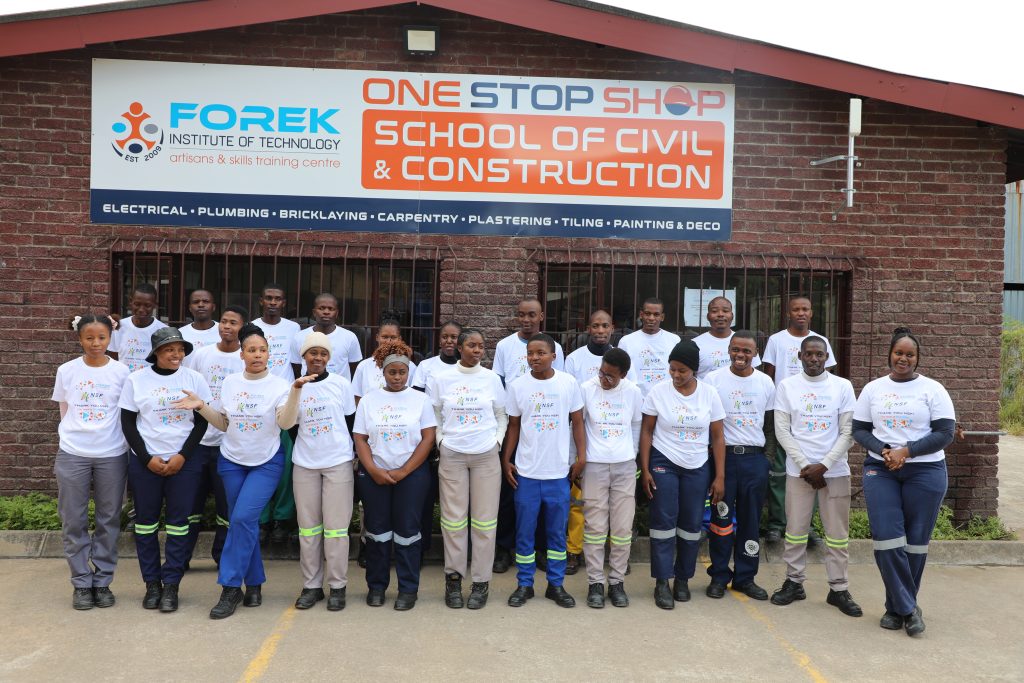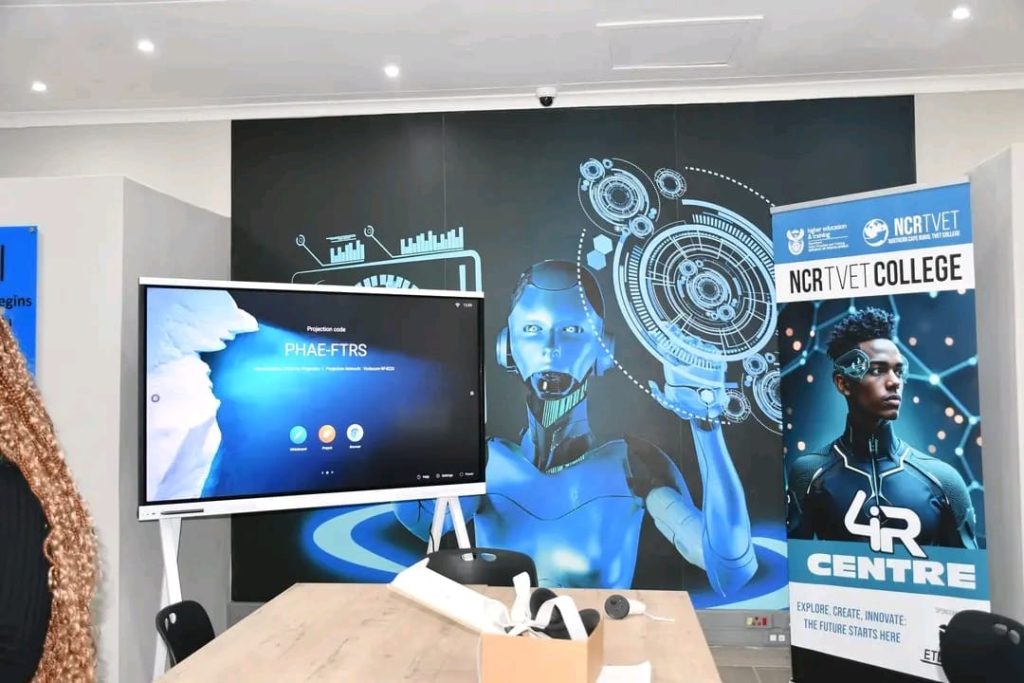NSF bricklaying beneficiaries (From left: Phumelele Ndwandwe, Sthembele Nzunza and Zanele Shamase) demonstrating bricklaying skills at their learning centre in Kwa Nongoma, KwaZulu-Natal
The Zululand District Municipality (ZDM) project is a significant initiative to address critical skills shortages in the rural areas of KwaZulu-Natal. Launched on 1 January 2023 and set to run until 26 May 2026, the NSF’s R250 million support will aid skills development interventions and create opportunities for the youth in the Zululand District, which includes Pongola, Ulundi, Vryheid, Dumbe, and Nongoma.
The project’s primary objective is to bridge the skills gap in rural KwaZulu-Natal, where economic opportunities and skill development resources are often limited. The project focuses on providing professional training to previously disadvantaged youth to produce skilled artisans who can contribute to the local economy and improve their communities. It also addresses the needs of the NEET (Not in Education, Employment, or Training) group, which is significant in these rural areas.
The project is being implemented by MTL Training and Projects, a training provider specialising in skills development across various sectors. The ZDM project offers eight programmes that will recruit 5 970 learners across eight programmes: Plant Production (800 learners), Early Childhood Development (ECD) (900 learners), ARPL Plumbing (1 220 learners), ARPL Electricity (400 learners), ARPL Bricklaying (400 learners), Construction Roadworks (700 learners), New Venture Creation (650 learners), and Building and Construction (700 learners). To date, 4 524 learners have been recruited, with ongoing efforts to meet the overall target. While focusing on skill acquisition, these initiatives also challenge and change traditional roles.
Notably, the bricklaying programme in Nongoma has achieved an impressive enrolment of 90% of women, breaking traditional gender barriers in a male-dominated trade.
Phindile Ntshangase, a bricklaying beneficiary from Kwa-Maduma, shared her experience: “I heard about the programme on the Zululand Municipality’s Facebook page. The programme helped me gain knowledge and experience in bricklaying. I plan to be involved in a building project and later start my own company.”
The District Development Model (DDM), initiated in 2019, fosters collaborative governance across all spheres of government to promote sustainable development. It breaks down the “silo” approach, ensuring coordinated planning, budgeting, and implementation at the local level. As part of this initiative, ZDM project targets rural areas with high unemployment, focusing on skills development and job creation to address local challenges that align with national priorities. Through ZDM-type initiatives, the DDM seeks to achieve balanced growth and reduce poverty and inequality.
Nelisiwe Nkambule, MTL Quality Assurance Manager, shared insights into the project’s impact: “The participants fully understand the context of the trades and are equipped to become future entrepreneurs. Many learners are preparing for their trade tests, which signals their grasp of the content of their trades. Some have already begun to apply what they’ve learned in their communities, a sign that they are ready to start their businesses.”
She added: “There is always something that can be added after obtaining qualifications, like the New Venture Creation programme, which teaches learners how to apply their skills in business.”
Sifiso Mamba, NSF’s Project Manager, emphasised the project’s broader community impact: “The idea behind training people is to uplift their living standards. We do not train for the sake of training but to help them secure jobs or start their businesses. For instance, learners trained in ECD have opened crèches, bringing these essential services closer to communities that previously had to travel to access them.”
The impact of the ZDM project is evident through the successful recruitment and training of many learners. The programmes are designed to equip participants with theory, practical skills and qualifications needed to excel in various trades, enhancing their employability and fostering economic growth in the region.
The ZDM project’s ongoing success is making a tangible difference. As it continues, it is poised to leave a lasting legacy of empowered individuals and thriving communities in Zululand.
The NSF’s investment in this project highlights a commitment to addressing skills shortages, nurturing economic development, and improving the livelihoods of rural communities.
By: Lemogang Semela, NSF Graduate Intern
Picture: NSF bricklaying beneficiaries (From left: Phumelele Ndwandwe, Sthembele Nzunza and Zanele Shamase) demonstrating bricklaying skills at their learning centre in Kwa Nongoma, KwaZulu-Natal
24 318
Learners were supported financially for education and training in 2023/24.



